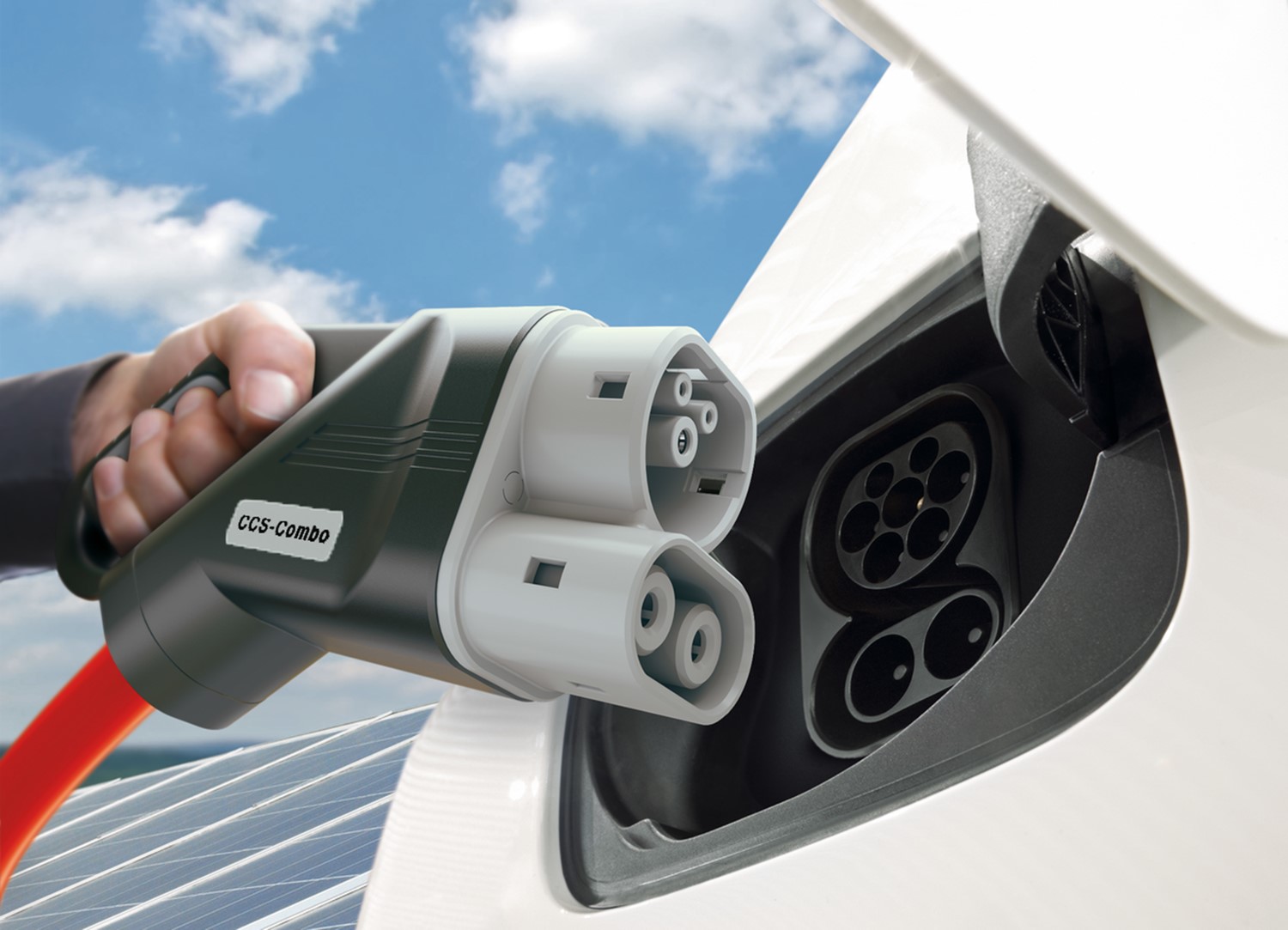BMW, Merc, Ford, VW, Audi & Porsche Joint Venture
-

Going forward all cars except Tesla will use the high voltage Combined Charging System (CSS) standard. Cars equipped with this plug configuration can use 120V, 240V or 480V charging stations. Joint Venture to deploy a high-powered DC charging network for battery electric vehicles (BEV) covering long-distance travel routes in Europe
- Power levels up to 350 kW significantly reduce charging time compared to available systems
- Build-up of about 400 ultra-fast charging sites planned in Europe
- Network is based on the Combined Charging System (CCS) standard which uses a connector that is fully compatible with most current and next generations BEVs
- Unprecedented collaboration of the automakers would form a brand-independent network for charging infrastructure
Stuttgart, November 29, 2016, BMW Group, Daimler AG, Ford Motor Company and Volkswagen Group with Audi and Porsche have signed a Memorandum of Understanding to create the highest-powered charging network in Europe. The goal is the quick build-up of a sizable number of stations in order to enable long-range travel for battery electric vehicle drivers. This will be an important step towards facilitating mass-market BEV adoption.
The projected ultra-fast high-powered charging network with power levels up to 350 kW will be significantly faster than the most powerful charging system deployed today. The build-up is planned to start in 2017. An initial target of about 400 sites in Europe is planned. By 2020 the customers should have access to thousands of high-powered charging points. The goal is to enable long-distance travel through open-network charging stations along highways and major thoroughfares, which has not been feasible for most BEV drivers to date. The charging experience is expected to evolve to be as convenient as refueling at conventional gas stations.
The network will be based on Combined Charging System (CCS) standard technology. The planned charging infrastructure expands the existing technical standard for AC- and DC charging of electric vehicles to the next level of capacity for DC fast charging with up to 350 kW. BEVs that are engineered to accept this full power of the charge stations can recharge brand-independently in a fraction of the time of today’s BEVs. The network is intended to serve all CCS equipped vehicles to facilitate the BEV adoption in Europe.
BMW Group
"This high-power charging network provides motorists with another strong argument to move towards electric mobility", says Harald Krüger, Chairman of the Board of Management of BMW AG. "The BMW Group has initiated numerous public charging infrastructure projects over the last years. The joint project is another major milestone clearly demonstrating that competitors are combining forces to ramp-up e-mobility."
Daimler AG
| Instead of the oil companies outfitting their stations with some of these charging stations so they can remain in business, the auto manufacturers and governments have the foresight to do their own recharging stations, thereby leaving nothing for the oil industry to do with their gas stations in the future. Eventually the big oil companies will all be out of business, or significantly diminished. That is why gasoline prices are never going back up to previous heights. The oil companies know they have to pump all they can out of the ground today, because in the future they will have few customers for their 'dirty' fuel. |
"The breakthrough of e-mobility requires two things: convincing vehicles and a comprehensive charging infrastructure. With our new brand EQ, we are launching our electric product offensive: by 2025, our portfolio will include more than ten fully electric passenger cars. Together with our partners, we are now installing the highest-powered charging infrastructure in Europe", says Dr. Dieter Zetsche, Chairman of the Board of Management of Daimler AG and Head of Mercedes-Benz Cars. "The availability of high-power stations allows long-distance e-mobility for the first time and will convince more and more customers to opt for an electric vehicle."
Ford Motor Company
"A reliable, ultra-fast charging infrastructure is important for mass consumer adoption and has the potential to transform the possibilities for electric driving", says Mark Fields, president and CEO, Ford Motor Company. "Ford is committed to developing vehicles and technologies that make people’s lives better, and this charging network will make it easier and more practical for customers across Europe to own electrified vehicles."
AUDI AG
"We intend to create a network that allows our customers on long-distance trips to use a coffee break for recharging", says Rupert Stadler, Chairman of the Board of Management of AUDI AG. "Reliable fast charging services are a key factor for drivers to choose an electric vehicle. With this cooperation we want to boost a broader market adoption of e-mobility and speed up the shift towards emission-free driving."
Porsche AG
"There are two decisive aspects for us: ultra-fast charging and placing the charging stations at the right positions", says Oliver Blume, Chairman of the Executive Board of Porsche AG. "Together, these two factors enable us to travel in an all-electrically powered car as in a conventional combustion engine vehicle. As automobile manufacturer, we actively shape our future, not only by developing all-electrically powered vehicles but by building up the necessary infrastructure as well."
The automobile manufacturers intend to make substantial investments to create the network, underscoring each company’s belief in the future of electric mobility. While the founding partners — BMW Group, Daimler AG, Ford Motor Company and Volkswagen Group — will be equal partners in the Joint Venture, other automobile manufacturers will be encouraged to participate in the network to help establish convenient charging solutions for BEV customers. The Joint Venture is also open for cooperations with regional partners
The Joint Venture formation is subject to execution of definitive agreements and merger control approval in various jurisdictions.
